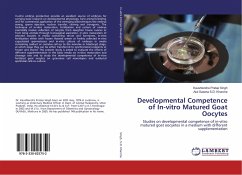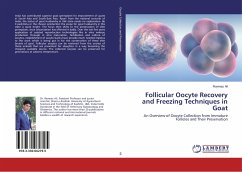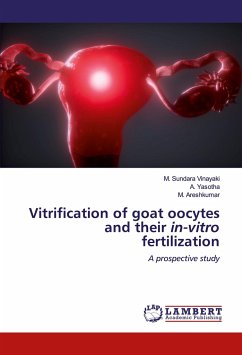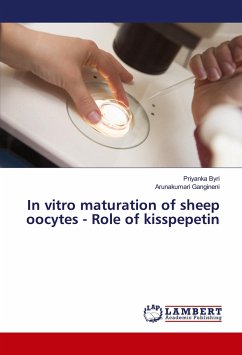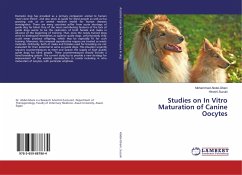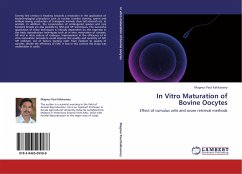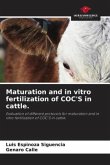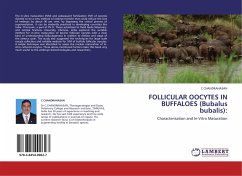In-vitro embryo production provide an excellent source of embryos for carrying basic research on developmental physiology, farm animal breeding and for commercial application of the emerging biotechniques like embryo sexing, sperm injection, nuclear transfer, cloning and transgenic. The technique of in-vitro maturation, fertilization and culture of embryo essentially involve collection of oocytes from slaughter house ovaries or from living animals through transvaginal aspiration, in-vitro maturation of selected oocytes in media containing serum and hormones, in-vitro fertilization either with frozen thawed semen or freshly collected in-vitro capacitated spermatozoa and in-vitro culture of embryos in media containing oviduct or cumulus cell up to the morulae or blastocyst stage, at which stage they can be either transferred to synchronized recipients or frozen and stored. The present study is aimed to evaluate the effects of different supplementation in the basic media on in-vitromaturation and cleavage rate and to study the developmental competence of in-vitro fertilized goat oocytes on granulosa cell monolayers and oviductal epethelial cells co-culture.
Hinweis: Dieser Artikel kann nur an eine deutsche Lieferadresse ausgeliefert werden.
Hinweis: Dieser Artikel kann nur an eine deutsche Lieferadresse ausgeliefert werden.

